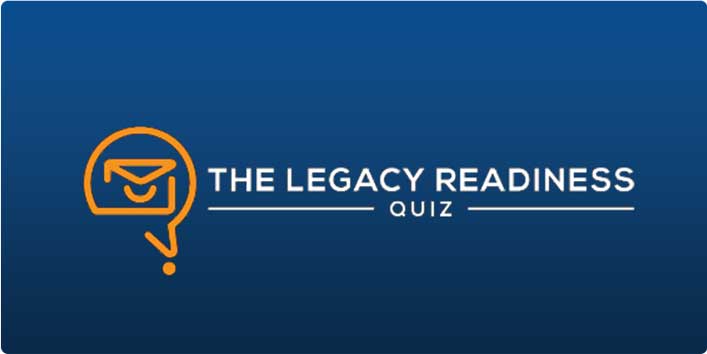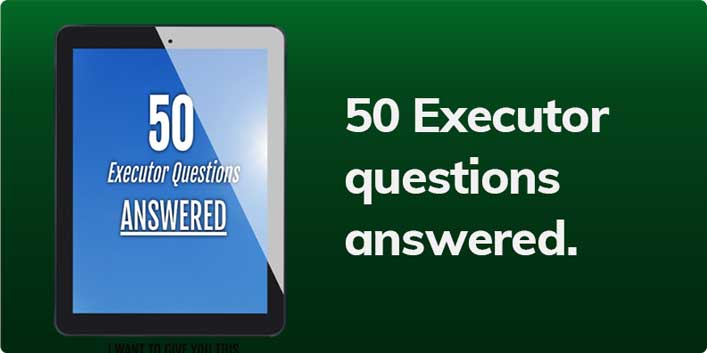- Home
- Problems with being an executor
- Can an Executor Take Everything
Can an Executor Take Everything?
Short Answer - No
Can an Executor take everything is the fear some beneficiaries do have.
While the death of a loved one is a difficult time, and understanding how their assets will be distributed can add to the stress.
The only job an executor is responsible for ensuring that the deceased's wishes are carried out, but what happens if they take everything for themselves?
In this post, I'll explain the role of an executor and the distribution of assets, as well as answer the question: can an executor take everything?
Understanding the Role of an Executor
An executor is appointed by the deceased to manage their estate after their death. Their duties include identifying and securing assets, paying debts and taxes, and distributing the remaining assets to the beneficiaries.
It is not an easy job as it can take 18-24 months or longer for an executor to get an estate settled.
Most of the time the person(s) asked to be an executor have absolutely no idea what the job entails.
Executors are fiduciaries, meaning they have a legal obligation to act in the best interests of the estate and its beneficiaries. However, they do have certain powers and limitations.
The Distribute Assets
If the deceased left a will, it will outline how they want their assets distributed.
The executor must follow the instructions in the will unless they are illegal or impossible to carry out.
The executor is also responsible for ensuring that the will is valid and that any challenges to its validity are addressed.
Intestacy Rules
If the deceased did not leave a will, their assets will be distributed according to the laws of intestacy (meaning dying without a will).
This typically means that the deceased's spouse or children will inherit the assets, but the distribution can vary depending on the jurisdiction of a province (Canada) or State (U.S.).

A Family Feud Over an Estate
After their father passed away, two siblings found themselves in a bitter feud over the distribution of the estate.
The father had left a will that left the majority of the assets to one sibling, which the other felt was unfair.
The executor, a family friend, tried to mediate the dispute but was ultimately unsuccessful. The siblings took the case to court, and after a lengthy legal battle, the court upheld the will and the distribution of assets.
So Can an Executor Take Everything?

Short answer.
No
However executors are entitled to reasonable fees and compensation for their time it takes to settle the estate, as outlined in the will or by law.
Which means they cannot take more than what is allowed by law or what is reasonable for their time.
Challenges to the Executor's Actions
It is not uncommon for beneficiaries to challenge the executor's decisions if they believe they are not acting in the best interests of the estate.
This can include disputes over asset valuations, distributions, or the executor's conduct and lack of communication.
Legal Actions Against the Executor
If an executor abuses their power or fails to carry out their duties, beneficiaries can take legal action against them. This can include removing the executor from their position, seeking damages, or even
A Beneficiary Discovers Executor Misconduct
After their aunt passed away, a beneficiary discovered that the executor had taken excessive fees and compensation for their services.
The beneficiary also found evidence of misconduct and self-dealing.
The beneficiary challenged the executor's actions in court and was successful in having the executor removed from their position and ordered to repay the excessive fees.
7 Frequently Asked Questions about Understanding Your Rights as a Beneficiary
Can an executor take everything in a will?
You know the answer, an executor is bound by fiduciary duty to act in the best interests of the estate and its beneficiaries. They must follow the instructions in the will unless they are illegal or impossible to carry out.
What are the powers and limitations of an executor?
An executor has the power to manage the estate and distribute assets to the beneficiaries, but they are limited by the instructions in the will and by law.
They must act in the best interests of the estate and its beneficiaries and cannot take more than what is allowed by law or what is reasonable for their time to settle the estate.
How are assets distributed after death?
Assets are distributed either according to the instructions in the deceased's will or through intestacy rules if there is no will.
The executor is responsible for ensuring that the assets are distributed to the beneficiaries in accordance with the will or intestacy rules.
What happens if an executor abuses their power?
If an executor abuses their power, beneficiaries can take legal action against them.
This can include removing the executor from their position, seeking damages, or even criminal charges in cases of fraud or embezzlement.
Can beneficiaries challenge the executor's decisions?
Yes, beneficiaries can challenge the executor's decisions if they believe they are not acting in the best interests of the estate.
This can include disputes over asset valuations, distributions, or the executor's conduct.
What are the consequences of an executor's misconduct?
If an executor engages in misconduct, they can be removed from their position, ordered to repay excessive fees or compensation, or even face criminal charges in cases of fraud or embezzlement.
What is the difference between a will and intestacy?
A will is a legal document that outlines how the deceased's assets should be distributed after their death.
Intestacy refers to the distribution of assets when there is no will. In cases of intestacy, this is the government's estate plan for you. The distribution of assets is determined by the laws of the jurisdiction where the deceased lived. Which means the government will dictate how your estate will be settled.
- Home
- Problems with being an executor
- Can an Executor Take Everything






